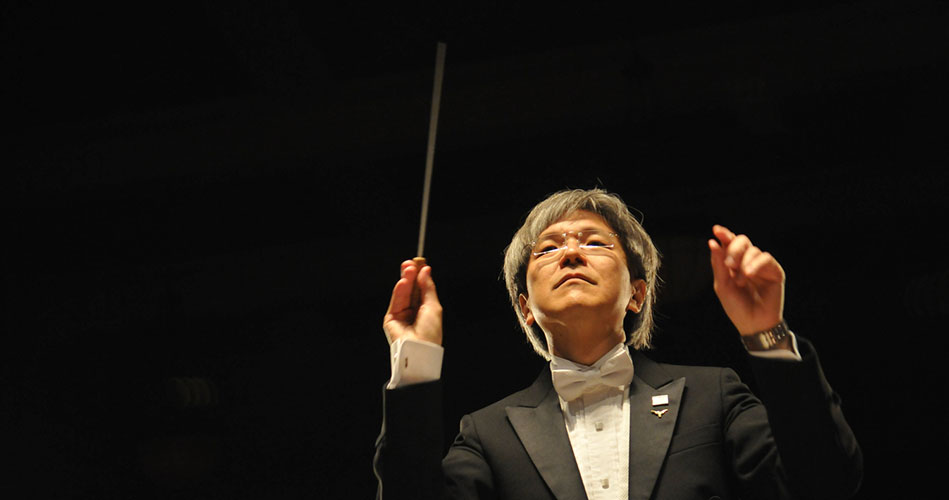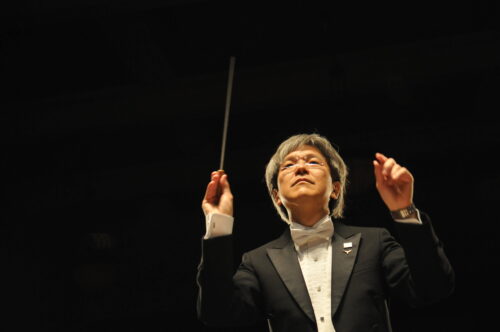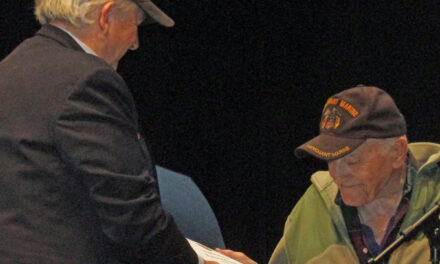By GAIL LOWE
MELROSE — While it might not have been a grand night for singing, opening night of the 107th season of the Melrose Symphony Orchestra (MSO) was certainly a night for applause.
Under the expert direction and conducting of Yoichi Udagawa, 64 members of the orchestra led off with Ludwig van Beethoven’s “Egmont Overture, Opus 84,” written for flutes, piccolos, oboes, clarinets, bassoons, horns, trumpets, timpani and strings.
“Egmont” is a story about a man who dies for his cause, a theme that inspired the German composer throughout his life due to his profound hearing loss, which he viewed as a personal struggle to overcome through his music. Essentially, Beethoven created art even in the face of a debilitating condition that might drive another musician to suicide. Instead, he considered his art as a way to continue living and express himself in spite of his disability. After all was said and done, he fought against his limitations to leave a lasting legacy through his work.
In alignment with “dying for a cause,” Egmont was a 16th century nobleman who led the Flemish resistance against the Spanish rule of The Netherlands.
Following a rousing and sincere response to “Egmont” from the nearly sold-out concert, Melrose native and cellist Nicholas Finch took the stage but not before offering a lighthearted comment: “I must have passed the audition,” he joked prior to rosining up his bow.
According to program notes, Finch made his concerto debut with the all-volunteer orchestra in the fall of 2000, performing Camille Saint-Saens’s Cello Concerto No. 1 in A Minor, Opus 33.
Last Saturday night, November 2 — 24 years later — he returned to the stage to echo what many consider a masterpiece of French music. Known for its innovative structure, clarity and memorable melody, the work opens with no orchestral introduction. All three movements flow together, and the cello plays a quick theme that is later adopted by the orchestra.
The Melrose cellist began his studies locally at age 12 and later attended Harvard, Julliard, the University of Michigan and the Mannes College of Music in New York.
In the interim, Finch established himself as an artist of great depth and diversity—as a solo cellist, recitalist, orchestral principal, chamber musician, conductor, founder and curator. As if this were not enough, while on a leave of absence from the Louisville Orchestra during the 2023-24 season, he earned a second master’s degree from the University of Michigan in Orchestral Conducting.
No doubt about it. Finch has given his native city plenty of reason to be proud.
After a brief intermission, MSO’s opening concert was devoted to Pytor Ilyich Tchaikovsky’s Symphony No. 5 in E minor, Opus 64. The music has four movements and is considered one of the greatest of all classical works, and the MSO rose to the occasion to cover all the nuances of the score, beginning with emotional shadowy passages and ending with notes and measures that bring the symphony to an exciting, dramatic finale.
According to program notes, Tchaikovsky’s focus in writing the work was on mankind’s struggle with fate and includes nods to a Slavonic folk tune followed by a beautiful horn melody and short waltz. It concludes with brass fanfare in a major key.
At the close of the piece, an appreciative, exuberant audience stood with Udagawa and the orchestra, demonstrating the energy and joy Tchaikovsky hoped to express.
Coming to Memorial Hall on Friday, December 13 and Saturday, December 14 will be MSO’s annual Holiday Pops. The festive music will include selections from “The Nutcracker,” a Chanukah Tribute and “Rudolph the Red-Nosed Reindeer” among other holiday favorites.






